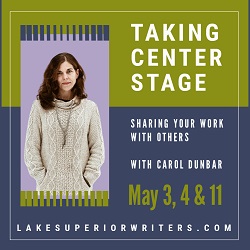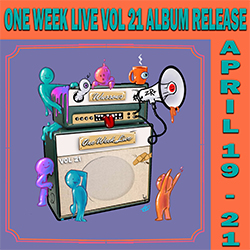Stormy or Calm
 She called me after dinner. “I think I need to go to Bemidji. Something is wrong with Charlie.”
She called me after dinner. “I think I need to go to Bemidji. Something is wrong with Charlie.”
Charlie was her son, a slender, emo-goth kid, like I was when I was his age, but with a gregarious desire to be liked. Committed to social justice — as most middle schoolers seem to be, lately — Charlie was attending a language camp. The camp would end the next morning, so leaving that night was ahead of schedule.
“Swing by my place on the way there, and I will ride with you,” I told her.
She drove the first leg of the trip, down Highway 2 through Proctor into Grand Rapids, where we pulled over for gas. She called the camp to get clarification about why Charlie needed to be picked up. Was he sick? Food poisoning? Running a temperature? No. He had said some words that meant he had to leave the camp; he could not spend the night.
* * *
The camp had policies addressing “disciplinary reasons” and “medical, mental, emotional and social health reasons” for sending a kid home. The kinds of things that get you thrown out of a summer language camp are pretty limited. Physically injuring someone would get a kid removed, or some serious verbal violence.
We never expected these policies to apply, because Charlie was emotionally rich and complex and in tune with his emotions and the feelings of those around him. Sure, he could get surly like most 12 year olds, and he was, as most kids are nowadays, willing to punch a Nazi, but he was her baby. Charlie was a tender soul.
* * *
Off Highway 2, headed toward the language camp, deep into the woods, we started to brainstorm how to respond to what Charlie had said. He told a counsellor he felt like hurting himself. By strict interpretation, he had threatened self-harm, and a policy fell down on the child like the spikes at the base of a portcullis.
If Charlie did hurt himself, we would have been crazed with anger the next morning, both of us. If he had hurt himself, the other kids would have freaked, their parents angry too, the next morning. So the camp was chasing the problem off its grounds.
But he was her baby, and we knew he wouldn’t do that to himself and he wouldn’t do anything to traumatize the kids around him. He was offering a genuine report of his feelings, and now, he was being sent home for it.
* * *
Kids don’t report their dark, inner life for a lot of reasons. Kids will not report out of concern for others (e.g. fear that they will stress out their loved ones). They will not report out of fear of others’ negative reactions (e.g. fear that they will be judged). They will not report because they fear repercussions (e.g. like being sent home from camp early). [1]
She had done an amazing amount of work with her children, ensuring that they never felt like the expression of their interior life would result in judgement. She loved them just as they are, whether their interior life was stormy or calm. The rest of the world wasn’t so open.
* * *
The pickup, long after 10 p.m., was smooth and almost celebratory. The counselors were kind, sweet, as if this were entirely normal, for one child to go home a night early. The other kids were sorry to see Charlie go, but again, nothing seemed out of the ordinary.
We loaded into the car. It would have been easy and simple to just plow through the night to get home, back to Duluth. We would have been home before bartime — and there were two of us to drive. But Charlie was intent on being present for the closing ceremonies. While she drove, I started to call for a hotel room. Bemidji was hosting a dragon boat festival, so all hotels were booked, except the Cedar Lakes Casino, where we checked in.
Charlie was hungry. Luckily, food is always available at a casino. We left him in the room and headed to the Grille, which had to be good, because there was an “e” on the end. We ordered chicken strips and I turned to her while we waited for them to be dipped in the fryer.
“So, we go back in the morning for the ceremonies?” I asked.
“Yeah,” she said.
I remembered twenty years of bad conditioning from my own family, the kind of parenting that says that actions have consequences and a child should have their nose rubbed in their actions the way a dog has their nose rubbed in the poop or pee they leave on the rug.
“Charlie, do you know why we had to come get you?” the spirit of my grandparents, alive in me, wanted to ask. “Because you said a thing, and now we need to go home.” Thank god, their voices were smaller than hers. Her voice resonated in my bones, shaking everything loose.
She knew that the camp policies meant Charlie had to go, but she also knew that Charlie did nothing wrong. We couldn’t let Charlie believe that being moved from the camp to the hotel was “punishment” for sharing their interior life.
So not a word was said, and the chicken strips were delicious. In the morning, she and Charlie returned to the camp and participated in the closing ceremonies.
* * *
Adults struggle with revealing their interior life, too. Psychologists call this “self-concealment — a tendency to hide distressing information.” [2] Like young adults, some of the reasons for self-concealment among adults include fear of rejection, shame, and hospitalization (a very specific repercussion). The same radical acceptance that she brought to her children as they shared their inner life, we should bring to each other, if we want people to be open about the struggles they face — if we want to normalize and help them transcend the struggles they face.
As adults, that radical acceptance is harder to experience. Children are embedded, sometimes nuzzled and swaddled, within a family. Adults are removed from those webs. Research shows that adults afraid to tell others their darkest thoughts are more likely to have few social contacts. Without those contacts, adults develop cynicism toward help-seeking. Unwilling to seek help, these adults experience unmet interpersonal needs. And so adults, faced with an emotional life darkened by their unmet needs, will conceal that emotional life. [3]
Research on how to listen for depression, sadness, and darkness in the people around us is rich. Men (when experiencing darkness) point to symptoms in the heart — sometimes begging their general practitioner to find high blood pressure or some other pharmaceutically treatable defect. Women often assign symptoms to the body, too, rather than talk about depression directly:
[Women] assigned [symptoms of depression] more often to the stomach as exemplified by E: “And then I got a bodily pain in the stomach, so I felt as if I had got a hole, that something had exploded, there’s nothing left, it’s empty … it was a bodily pain, it wasn’t any mental pain, I felt I had a hole.”[4]
Chicken strips will not fill that hole.
We need to learn to listen for emotions that others are afraid to speak, so that we can make them feel safe to speak them. It would be cruel to raise a child like Charlie, one in touch with their emotions, into a world that won’t accept them.
Notes
[1] See Adryon Burton Denmark, Elaine A. Hess and Martin Becker, “College Students’ Reasons for Concealing Suicidal Ideation.”
[2] See Ingrid Hogge and Paige Blankenship, “Self-Concealment and Suicidality: Mediating Roles of Unmet Interpersonal Needs and Attitudes Toward Help-Seeking.”
[3] This phenomenon is discussed in Anthony Fulginiti and Laura M Frey, “Exploring Suicide-Related Disclosure Motivation and the Impact on Mechanisms Linked to Suicide” and in Saskia Mérelle, Elise Foppen, Renske Gilissen, J. Mokkenstorm, & Resi Cluitmans and Wouter van Ballegooijen, “Characteristics Associated with Non-Disclosure of Suicidal Ideation in Adults.”
[4] See Ulla Danielsson & Eva E. Johansson, “Beyond Weeping and Crying.”
Recommended Links:
Leave a Comment
Only registered members can post a comment , Login / Register Here













1 Comment
Buzzard
about 3 years ago